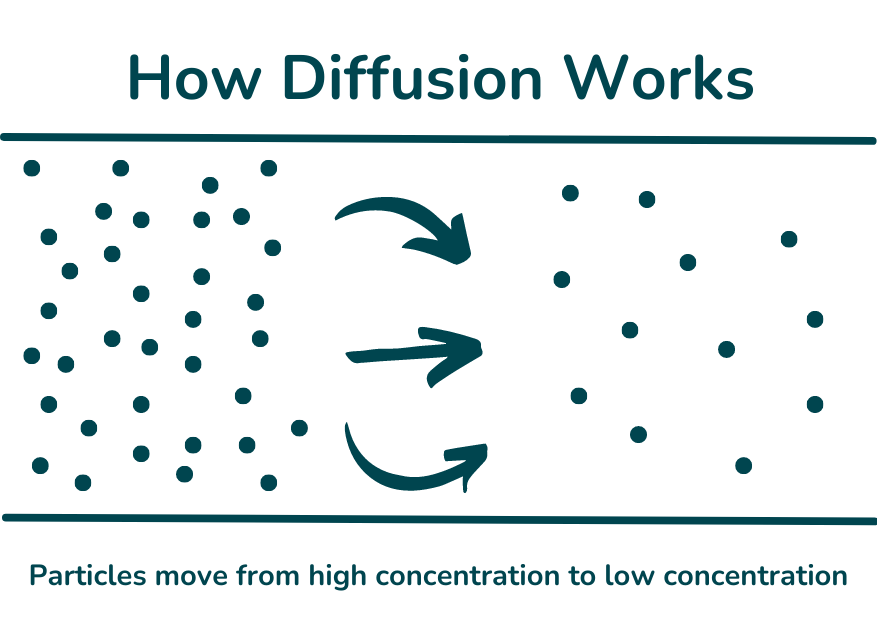Diffusion is the random movement of particles from areas of high concentration to low concentration. This rate is not fixed and can be affected by a number of factors. One factor is the temperature of the medium/solvent as well as the temperature of the particles that are moving via diffusion. Warmer particles have more kinetic energy and are thus moving more quickly, leading to an increased rate of diffusion.
Diffusion, Osmosis and Active Transport Explained
Factors that Affect the Rate of Diffusion

Another factor is the concentration gradient, meaning the difference between concentration in one area and in another. A greater concentration gradient will lead to an increased rate of diffusion from high to low concentration. An additional factor is the size of the surface area available for diffusion. This is because a larger surface area can effectively increase the concentration gradient, not per unit area but overall a concentration gradient is created with each unit of surface area.
How does Active Transport Differ from Diffusion?
Active transport differs from diffusion as it is an active process which requires energy in the form of ATP (adenosine triphosphate), whereas diffusion is a passive process. In active transport, substances are moved across the cell membrane using transporter proteins and ATP. Active transport goes against the concentration gradient, whilst diffusion goes with the concentration gradient.
Why is Diffusion Important to Animals and Plants?
Diffusion is an essential process for plants and animals in order to maintain their internal body conditions (homeostasis) and remove waste products. In the lungs, diffusion facilitates the gaseous exchange after respiration, infusing the blood with oxygen and removing carbon dioxide. Another good example is fish that perform a similar action using their gills as a surface for diffusion. Plants also exchange gases through their stomata using the process of diffusion.
If you want to find out how well you know biology, why not take our GCSE Biology Quiz, even if you’ve already done your GCSEs and want to see how much you remember?
Now test your knowledge with a quiz below!
